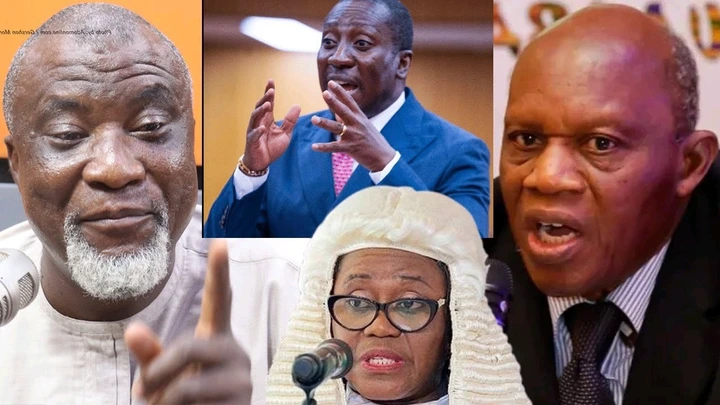Political activist Hopeson Adorye has made explosive claims about the growing politicization of Ghana’s judiciary, echoing concerns raised by retired Supreme Court Justice William Atuguba.
Adorye alleges that there is a deliberate effort to politicize the judiciary, pointing to historical and current instances of alleged interference.
He criticizes the appointment of Supreme Court justices, claiming that selections often favor politically aligned individuals over merit.
Atuguba has also spoken out about the issue, warning that bypassing competent senior judges erodes the judiciary’s credibility. He defended the suspension of Chief Justice Gertrude Torkornoo, saying that the process was constitutional. Adorye raised concerns about Torkornoo’s travel allowances, alleging discrepancies between official and private trips.
The controversy has sparked debate about the independence of Ghana’s judicial system, with critics accusing both major parties of undermining constitutional integrity for political gain. Adorye’s comments have intensified scrutiny on the judiciary, particularly following recent controversies surrounding Torkornoo’s suspension and remarks by Minority Leader Alexander Afenyo-Markin.
Afenyo-Markin has defended Torkornoo, calling her suspension a “flimsy, politically motivated attack.” Adorye dismissed this rhetoric as “honest rubbish,” arguing that the NPP’s outrage is selective. The controversy highlights deep concerns about the judiciary’s independence and the need for transparency and accountability in the appointment of judges.
The politicization of the judiciary is a serious issue that can have far-reaching consequences for the rule of law and democracy in Ghana. If the judiciary is seen as being politicized, it can erode public trust in the institution and undermine its ability to deliver justice impartially.
Adorye’s allegations have sparked a national conversation about the need for judicial reform and the importance of ensuring that the judiciary is independent and impartial. The controversy surrounding Torkornoo’s suspension has also raised questions about the role of the executive in the judiciary and the need for checks and balances.
Ultimately, the integrity of Ghana’s judiciary must be protected and preserved to ensure that justice is delivered fairly and impartially. The government and other stakeholders must work to address the concerns raised by Adorye and Atuguba and ensure that the judiciary is free from political interference.












